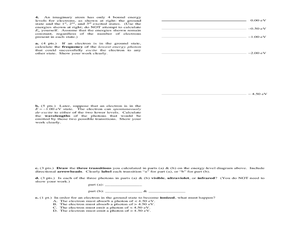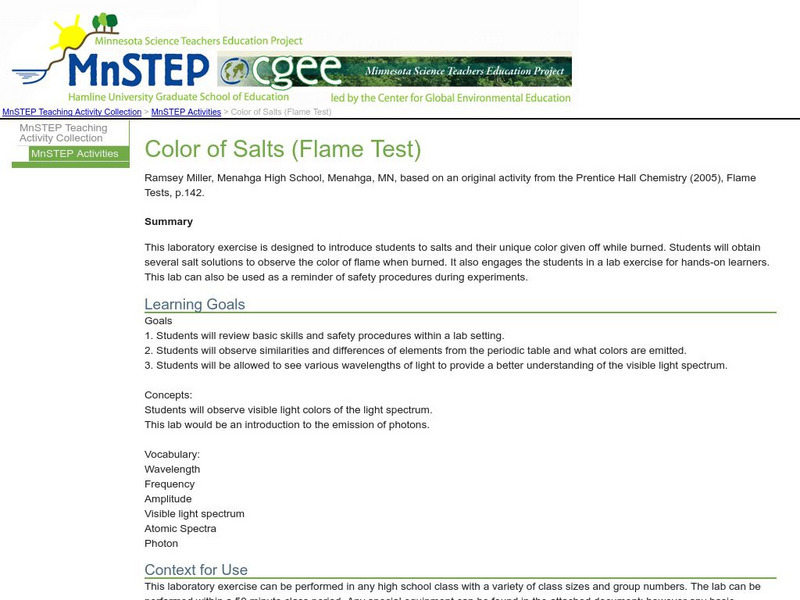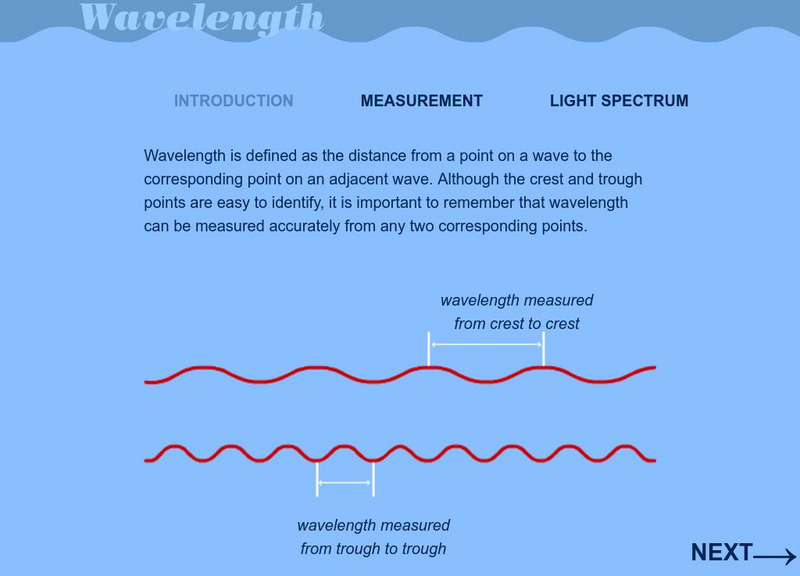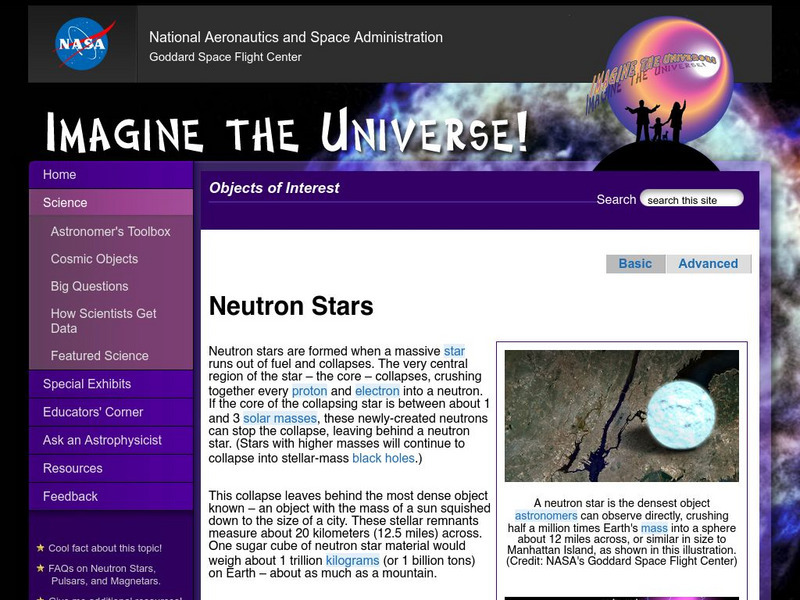Curated OER
Physics Final Exam, Part A
Here is a comprehensive and cohesive final exam for your high school physicists. A variety of question styles are incorporated, such as multiple-choice and problem-solving. Topics are too many to list, so you will want to review the exam...
PBS
Pbs Learning Media: Wavelength
In this interactive activity adapted from the University of Utah's ASPIRE Lab, students will learn how to measure wavelengths and see how wavelength affects the color of the light that we see.
Discovery Education
Discovery Education: 3 M Young Scientist Lab: Triboluminescence
Detectable flashes of light are released as wintergreen-flavored candies are crushed in darkness.
University of California
Uc Berkeley: How Do You Measure a Light Wavelength?
Cool science site tests your knowledge of light by exploring the question: "How do you measure a light wavelength?" Allows users to test themselves as well as provides additional activities on wavelength and amplitude.
Science Education Resource Center at Carleton College
Serc: How Can We Measure the Wavelength of Light Emitted From Stars?
This activity is designed for students to apply their knowledge of mathematics and physics to "real life" situations. Students are presented with the situation that they are on a camping trip and wish to know the wavelength emitted by a...
Science Education Resource Center at Carleton College
Serc: Color of Salts Flame Test
This laboratory exercise is designed to introduce young scholars to salts and their unique color given off while burned. Students will obtain several salt solutions to observe the color of flame when burned.
PBS
Pbs Learning Media: Wavelength
Understand the method used to measure wavelength and how light waves are associated with colors based on wavelength.
NASA
Nasa: Imagine the Universe: Neutron Stars and Pulsars
Discover what neutron stars and pulsars are and view pictures of them. Includes links to additional resources and lesson plans.
CK-12 Foundation
Ck 12: Plix: Wavelengths
[Free Registration/Login Required] In this interactive you will drag the red line left or right to explore how color and wavelength are related to each other. You will need a sign-in to access this media, but it will be well worth your...
Johns Hopkins University
The Electromagnetic Spectrum
NASA related site shows the entire Electromagnetic Spectrum. Provides a brief description of the expansive colored spectrum as well as a related link that provides more details.
Physics Classroom
The Physics Classroom: Light Waves and Color: The Path Difference
After looking at a representative two-point source interference pattern with accompanying order numbers, students investigate the rationale behind the numbering system, and develop some mathematical equations that relate the features of...
Physics Aviary
Physics Aviary: Radiant Emissions Lab
This lab is designed to allow students to look at the relative proportions of different wavelengths of light that are emitted by stars at different temperatures.
Physics Aviary
Physics Aviary: Wavelength Lab
This lab is designed to have students investigate the relationship between the speed of a wave, the frequency of the wave and the wavelength of the wave. Students can vary wave speed and frequency. Each of these should be varied while...
Utah Education Network
Uen: Wavelength and Energy
Young scholars will calculate energy, frequency, or wavelength. After calculating, students graph their data and answer analysis questions.
Simon Fraser University
Chem1 Virtual Textbook: Particles and Waves
Acting as a subtopic of the General Chemistry Virtual Textbook's section on Atoms and the Periodic Table, this site discusses wavelength and the uncertainty principle. Information is also provided on de Broglie wavelength and electron...
PBS
Nova Teachers: Einstein Revealed: What's Your Wavelength: Classroom Activity
Investigate the wavelength properties of visible light and the scattering effects of the earth's atmosphere on different wavelengths.
Science Struck
Science Struck: Wavelength of Light
Describes the characteristics of light, presents two formulas for calculating its wavelength, and provides a table of the different wavelength ranges across the electromagnetic spectrum.
Science Struck
Science Struck: Versatile Uses of a Spectrophotometer
Explains what spectrophotometry is, the types of spectrophotometers, and what they are used for.
NASA
Nasa: Imagine the Universe: Welcome to the World of Multiwavelength Astronomy!
This Imagine the Universe site provides an introduction into the multiwavelength universe and astronomy. Site provides graphics, links to a quiz, facts on this topic as well as teacher resources.











